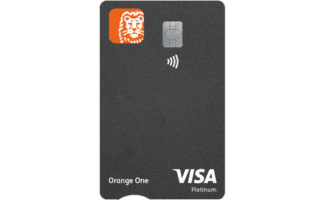How to Avoid Fraud and Protect Your Information When Using Credit Cards Online

The Importance of Protecting Your Financial Information
Online shopping has become an integral part of daily life in Australia, with many consumers turning to e-commerce platforms for the convenience it offers. With just a few clicks, one can purchase everything from groceries to electronics without having to venture outside. However, alongside this convenience lurks the risk of credit card fraud and data breaches that could jeopardize personal information and financial security.
To effectively safeguard against these risks, implementing a range of protective measures is crucial. Below are some detailed strategies that every online shopper should consider adopting:
- Use Secure Websites: When shopping online, it is imperative to verify that the website is secure. Look for the “https://” at the beginning of the URL, where the “s” stands for secure. Additionally, consider checking for website certificates, such as SSL (Secure Socket Layer), which encrypts data between a user’s browser and the web server to prevent unauthorized access.
- Monitor Your Accounts: Regular surveillance of bank statements and online account activities is essential to detect any unauthorized transactions in a timely manner. Many financial institutions offer alerts that can notify you of unusual activity, which can help mitigate potential losses.
- Utilize Strong Passwords: Creating robust passwords is one of the simplest and most effective ways to enhance account security. A strong password should be a mix of upper and lower case letters, numbers, and symbols, ideally over 12 characters long. Additionally, it is advisable to use different passwords for different sites and change them regularly to further thwart potential breaches.
Recent statistics shed light on the severity of credit card fraud in Australia. The Australian Competition and Consumer Commission (ACCC) reports that consumers experienced losses exceeding $2 million due to online scams within a single year. This alarming figure highlights the significance of taking preventive measures and underscores a broader trend of increasing vulnerability among online shoppers.
Beyond implementing these protective strategies, educating oneself about the potential signs of fraud is equally important. Being aware of phishing scams, for instance, can protect against inadvertently giving away personal information. Scammers often attempt to mimic legitimate businesses through emails or messages that appear trustworthy. Exercising caution and verifying sources can prevent falling victim to such tactics.
In conclusion, while the ease of online shopping provides unparalleled convenience, it is essential to remain vigilant to safeguard your financial information. By being proactive and employing effective strategies, consumers can enjoy a secure online shopping experience while minimizing the risks of credit card fraud and data breaches. Taking these precautions not only protects individual finances but also enhances confidence in navigating the ever-evolving digital marketplace.
SEE ALSO: Click here to read another article
Effective Strategies for Online Security
To minimize the risk of credit card fraud, it is essential to adopt a multifaceted approach to online security. Various strategies can be implemented to enhance your protection while shopping online. Here are some vital measures that can significantly reduce vulnerabilities:
- Enable Two-Factor Authentication (2FA): This additional layer of security requires not only a password but also a second factor, such as a text message or a mobile app verification code. By enabling 2FA on your online accounts, you can significantly reduce the risk of unauthorized access, even if your password is compromised.
- Be Wary of Public Wi-Fi: Connecting to unsecured networks, such as public Wi-Fi in cafes or airports, can expose your personal information to potential hackers. Avoid making financial transactions over these networks, or consider using a virtual private network (VPN) to encrypt your internet connection and keep your data safe.
- Keep Your Devices Updated: Regularly updating your devices and software is vital to protect against known vulnerabilities. Software developers frequently release patches and updates designed to address security issues. Enabling automatic updates for your operating system and applications can ensure your devices are equipped with the latest defenses against cyber threats.
- Utilize Credit Monitoring Services: Many financial institutions and independent services offer credit monitoring that can alert you to suspicious activity on your credit accounts. This service helps in early detection of potential fraud, allowing for prompt actions to mitigate damage before it escalates.
Understanding potential threats is equally important in preventing fraud. Scammers may employ various tactics to exploit unsuspecting consumers. For instance, phishing schemes are designed to trick individuals into sharing sensitive information under the disguise of legitimate communication. These may take the form of emails, text messages, or even phone calls that mimic trusted sources. Recognizing the tell-tale signs of such schemes—such as poor grammar, suspicious URLs, or unexpected requests for personal information—can prevent falling prey to these scams.
Additionally, consumers should remain cautious during peak shopping periods, such as holidays or major sales events, when scammers are particularly active. Adopting a mindset of vigilance and skepticism can enable consumers to identify anomalies in online communications or transactions. By maintaining a cautious approach, individuals can significantly reduce the risk of encountering fraudulent activities.
In the face of increasingly sophisticated cyber threats, it is imperative for consumers to take a proactive stance in safeguarding their financial information while shopping online. By implementing robust security measures and remaining informed about potential risks, online shoppers can enjoy the convenience of e-commerce without jeopardizing their security.
SEE ALSO: Click here to read another article
Staying Informed on Best Practices
In addition to implementing security measures, staying informed about best practices and emerging threats is crucial for ensuring your online safety. As technology evolves, so do the strategies used by cybercriminals. Regularly educating yourself on these trends can enhance your ability to identify potential risks and react appropriately.
- Regularly Review Bank Statements and Credit Reports: Conducting a thorough review of your bank statements and credit reports on a regular basis can help you spot any discrepancies or unauthorized transactions promptly. In Australia, consumers are entitled to receive a free credit report once a year from major credit reporting agencies, allowing for greater oversight on financial health. Consider using platforms such as CreditSimple or Equifax to simplify this process.
- Use Strong, Unique Passwords: Passwords are your first line of defense against unauthorized access to your accounts. Utilize long, complex passwords that include a mix of letters, numbers, and special characters. Additionally, avoid using the same password across multiple accounts, as this can create a higher risk if one account is compromised. Password managers can be valuable tools for securely storing and generating complex passwords.
- Limit Sharing of Personal Information: Be mindful of the personal information you share online. Scammers may use social engineering techniques to gather details that can help them impersonate you. Avoid sharing sensitive information such as your full address, phone number, or the names of your family members on social media platforms, especially those that can be easily accessed by strangers.
- Shop Only on Secure Websites: Ensure that the websites you shop on are secure by looking for HTTPS in the URL, indicating that the site uses encryption to protect your data. Additionally, look for trusted security badges or certifications that can provide further assurance of the site’s legitimacy.
It is also important to remain vigilant against social engineering tactics. These deceptive strategies can manipulate users into divulging personal or financial information. For example, a common ruse involves an email or message that appears to come from a reputable company, asking you to click a link to verify your account. Always verify the sender’s address and avoid clicking on any links until you have confirmed their legitimacy through official channels.
Furthermore, adopting practices such as using virtual credit cards or disposable card numbers can greatly enhance security when shopping online. Some Australian banks and fintech companies offer options that allow you to generate temporary card numbers tied to your main account. This means even if the information is compromised, the actual funds in your account remain secure, thereby minimizing potential losses.
Lastly, understanding your rights as a consumer in Australia plays a significant role in protecting yourself from credit card fraud. The Australian Competition and Consumer Commission (ACCC) provides insights into the protections available to consumers, including the right to dispute unauthorized transactions. Familiarizing yourself with these rights can empower you to act swiftly and decisively in the event of fraud.
By consistently applying these practices, you can design a personalized security protocol that not only protects your financial information but also empowers you to navigate the digital landscape confidently.
SEE ALSO: Click here to read another article
Conclusion
In the ever-evolving digital landscape, protecting your financial information and avoiding fraud while using credit cards online has never been more crucial. By staying informed about best practices, such as regularly reviewing your bank statements and credit reports, you can quickly identify unauthorized transactions. Implementing strong, unique passwords, limiting personal information sharing, and ensuring you shop only on secure websites are foundational steps that help fortify your defenses against potential fraud.
Moreover, adopting advanced security measures, such as virtual credit cards or disposable card numbers, can significantly mitigate risks when engaging in online transactions. Understanding your rights as a consumer in Australia, as outlined by the Australian Competition and Consumer Commission (ACCC), empowers you to take immediate action in case of fraud. This not only protects your financial assets but also enhances your confidence while navigating the digital marketplace.
Ultimately, remaining vigilant and proactive is key in the fight against online fraud. As cyber threats continue to evolve, so must our strategies for safeguarding our information. By incorporating these practices into your online shopping routine, you will establish a robust personal security protocol that not only minimizes risk but also enables you to shop with peace of mind. Embrace these strategies today to secure your financial future in an increasingly digital world.

Beatriz Johnson is a seasoned financial analyst and writer with a passion for simplifying the complexities of economics and finance. With over a decade of experience in the industry, she specializes in topics like personal finance, investment strategies, and global economic trends. Through her work, Beatriz empowers readers to make informed financial decisions and stay ahead in the ever-changing economic landscape.





